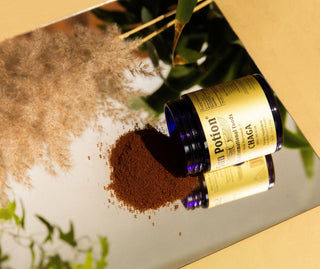If you love sourdough like I do, but you’re celiac or gluten free and miss all of the joys of eating sourdough then look no further. Making a gluten free sourdough starter only requires a few simple ingredients - flour, water and time.
There are so many benefits to eating sourdough bread as opposed to traditional breads. Not only is sourdough easier to digest than regular bread as it is a prebiotic, it helps in preventing issues such as indigestion. It also contains the beneficial bacteria lactobacillus which aids in gut health and has a lower glycemic load which will prevent it from causing higher spikes in blood sugar as traditional breads do.
Making a gluten free sourdough starter isn’t any different from making a regular sourdough starter. The only difference is that gluten free sourdough requires us to play with a variety of gluten free flours. Your gluten free sourdough starter can be made in as little as seven days using gluten free flour, water and a large enough vessel such as a jar or bowl to contain the starter. I prefer to use a mason jar!
Though this recipe calls for brown rice flour to create your starter, you can also successfully make a gluten free starter with white rice flour, teff flour, sorghum flour or oat flour.
Ingredients1/2 cup organic brown rice flour 1/3 cup filtered water |
MethodCombine organic brown rice flour and filtered water in vessel of choice Whisk until smooth (if too crumbly and not wet enough add a tablespoon of water at a time to reach a thick consistency but not runny) and cover the gluten free sourdough starter with a lid At least twice a day (or every 12 hours) for the next six to seven days, at regular intervals, add 1/2 cup of flour and 1/3 cup of filtered water to the existing starter >> Mix until smooth, and cover If vessel gets too full of starter simply discard some of your starter but keep adding water and flour in regular intervals When your gluten-free sourdough starter is very bubbly and rises about third of the way up the jar after 2-3 hours of feeding you are ready use your starter to make bread |
Maintaining Your StarterOnce established, your gluten free sourdough starter needs to be fed daily (same ratio for when creating a starter) Tip: When feeding gluten free starter flour and water and mixing you should have the consistency of a thick frosting If you bake frequently (every day or a few times a week) you can store your sourdough at room temperature, and feed it with 1⁄2 cup gluten free flour and 1⁄3 cup filtered water once a day, discarding starter when needed to accommodate for expansion If you bake infrequently (once a week) just store starter in the fridge (up to a week) until ready to use When you are ready to bake, no need to bring it to room temperature>> Just take out of the fridge and start baking |



















